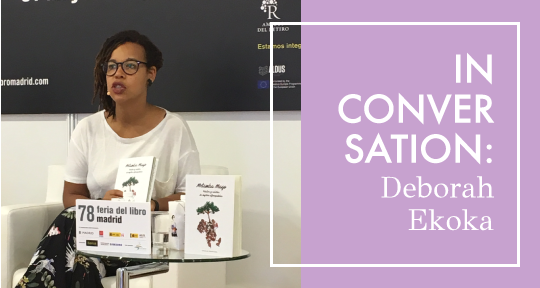The role that fiction plays in both relating and shaping our reality is pivotal, and this power that lies in representation is oftentimes an essential source of strength for individuals who persist under oppression and negation. For writers of queer texts in the contemporary Arab world, the complex paradigm of politics, history, storytelling, and interiority has culminated in an explosive multiplicity of voices and experiences, coming together in revolutionary expression. In this essay, MK Harb, Asymptote’s Editor-at-Large for Lebanon, focuses in on three novels which engage their queer characters and environments in surprising and enlightening narratives, denying easy categorization to tell the poetry of the personal.
Oftentimes, when discussing the subject of queerness in contemporary Arabic literature, the idea of time travel arises in tandem. I say this only half sarcastically: it is not strange for a piece of criticism on a twenty-first-century Arabic novel to have an introduction valorizing the homoerotic poetry of Abu Nuwas, an Arabo-Persian poet from the ninth century. To put this in literary perspective, imagine an article on Ocean Vuong’s On Earth We’re Briefly Gorgeous beginning with an introduction discussing a queer text from the European Middle Ages. This bemusing conundrum is a product of orientalist academic training, often popularized by the faculties of Middle Eastern Studies departments across Western universities: a standard that singles out race in using the past to justify the present, imagining an uninterrupted continuum of the “Arab” experience irrelevant of space and time.
This obsession with the queer past of the Middle Eastern archive rarely comes from an investigation into the transgressive capabilities of past writings; rather, a strong exoticism governs this curiosity, and it often falls into the trappings of fetishizing the body and the experience of male love. Now, the subject of queerness in contemporary Arabic literature is itself fraught; many countries across the Middle East and North Africa engage in heavy censorship of books, particularly ones with characters that defy the hegemony of national and patriarchal orders. The other dilemma is that of language—in the past years, many queer Arabic characters came to us through writings in English or French. Whether it is Saleem Haddad’s Guapa or Abdellah Taïa’s An Arab Melancholia, the question of translating the “Arabic queer” and its various experiences looms large. Regardless of such constraints, however, the canon does not lack for contemporary contenders, which shed some much-needed light on the developments in queer livelihoods and philosophies. In this article, we will go on an elaborately queer journey through the works of Samar Yazbek in Cinnamon, Hoda Barakat in The Stone of Laughter, and Muhammad Abdel Nabi in In the Spider’s Room. What binds the protagonists of these novels together is not simply their queerness, but also their strong interiority and internal monologues, through which they shatter and construct social orders. READ MORE…



